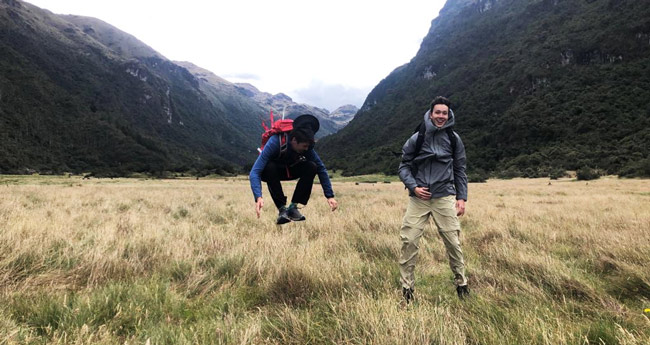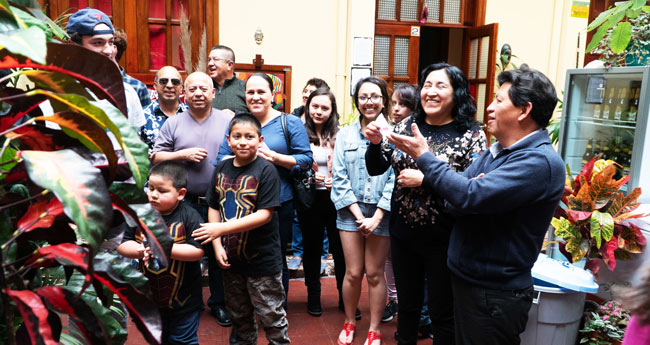Taking a Gap Year Before College
Updated January 2023 – Entering college a year later than the rest of your graduating class can seem daunting, but don’t let that fear come between you and the experience of a lifetime. There’s nothing “wrong” with taking time off before college. In fact, taking a gap year can better prepare you for college than entering college straight from high school.
If you’re holding off on college applications until after you’ve started or completed your gap year program, the skills and experiences you develop during that time can make you a standout college applicant (and give you lots to write about in your admissions essays!). If you’re planning to apply for college during the fall of your senior year or if you’re still uncertain about taking a gap year, there’s always the option to defer admission.
As gap year programs become increasingly popular and widespread, more colleges and universities are allowing students to defer admission, or postpone their start date. During college applications, make sure you understand the deferral policy of each school you apply to. Some colleges only allow deferrals for accredited gap year programs while others may require you to take additional actions during or after the application process. If this information is not available online, call or e-mail the school’s admissions officer. The Gap Year Association also regularly maintains a list of college and university deferral policies across the U.S.
If you choose to defer admission in order to take a gap year or you plan to apply for college after your gap year, you’ll find yourself enjoying several benefits from your time away from the (traditional) classroom.
Summer vacation is always too short. And when you start college, it seems even shorter than it was in high school. The three-day weekends and the breaks between semesters never feel like enough time to recover from all-nighters and final exams.
Taking more time off than the typical two- to three-month-long summer vacation helps reduce burnout going into college. While meeting your dormmate, attending freshman orientation, and taking classes like “Intro to Dinosaurs” have you excited and ready to start your college adventures, it can quickly become overwhelming.
Heading off to college doesn’t just mean learning course material and studying for exams. College also involves learning how to be more independent and self-sufficient, mastering your time management and organization skills, finding your sense of belonging, and much more. It’s easy to see why college students often experience burnout!
Taking a gap year gives you extra time between high school and college to rest. Some students get anxious about taking off too much time and worry that they’ll struggle to readapt to the classroom setting. However, if you’re enrolled in a well-structured gap year program, you never stop learning during your “time off.” The majority of accredited gap year programs include long-term projects and internship opportunities that require you to flex the same academic muscles you use in the traditional classroom setting, only your classroom could be anywhere in the world.
A byproduct of burnout is the loss of motivation. For many students, high school graduation is an uphill battle and the idea of going to college just a few months after graduation is debilitating. Participating in a gap year program might be exactly what you need to rediscover your motivation for learning or for experiencing unfamiliar cultures.
Sometimes all you need to get your groove back is a change of environment and participating in a gap year program gives you exactly that! One day your classroom might be a local coffee roaster in Ecuador and the next day it could be the home of a Costa Rican family. Gap year programs help you look at learning from a different lens and remind you that you don’t have to be sitting in an actual four-walled classroom to learn something new.
We all have that friend who has wanted to be a doctor since they were five years-old. And as soon as they entered college, they loaded up their schedule with pre-med classes and started attending every pre-med club meeting on campus. But for most college students, figuring out what you want to major in is challenging and taking class after class to figure out if you like something is time-consuming and stressful.
Gap year programs offer a unique opportunity to experiment with a variety of topics—any of which could be your future area of study. For example, spending a semester in Ecuador can expose you to topics like international development, project management, and community development. In addition, gap year programs provide experiential learning opportunities rather than lectures and classroom learning. In other words, you get to work on a real-world international development project instead of just doing homework on a hypothetical situation.
Bob Clagett, former Dean of Admissions at Middlebury College, designed a methodology to track the performance of gap year students’ GPA throughout college. In his methodology, Clagett predicted students’ academic ratings based on high school grades, teacher recommendations, course rigor, etc. and found that after taking a gap year, students performed far better than predicted. He also found that students who took a gap year had higher GPAs, on average, than students who did not take a gap year.
Beyond attaining higher grades, studies have also shown that 73% of gap year program participants feel more prepared for college as a result of participating in a program.
Some common reasons students elect to take a gap year are to develop as a person or to experience new cultures and places. Coincidentally, college essay prompts commonly pertain to experiences where an individual faced an obstacle, was “out of their comfort zone”, or was significantly impacted by an event.
Ask any of our alumni one of those questions and they’re guaranteed to have a story from their experience in a gap year program. After completing a gap year program, you will have countless stories and experiences to reflect on when it comes time to write admissions essays. Spending time abroad changes your perspective on the world around you and can help you better understand the impact of even the smallest actions. For example, simple things you never imagined doing – like racing wooden horses with local schoolchildren – could easily be turned into a 1000-word essay after you’ve completed a gap year abroad.
Beyond having time to relax post-graduation (and avoiding burnout) and coming home with enough stories to fill an entire book of college admissions essays, taking a gap year makes you stand out from other college applicants. It also makes you stand out in the applicant pool when it’s time to apply for internships and for your first full-time job after college.
Including your gap year experience on as part of your college application packet captures people’s attention because it’s different and speaks to who you are as a learner and as a person, even in just a single sentence on your resumé. Taking a gap year shows your love of learning, your open-mindedness, and your desire to experience other cultures. It evokes the curiosity of recruiters and admissions officers alike because there’s a truly unique story there—a story that only exists because, unlike other applicants, you took the road less traveled.





